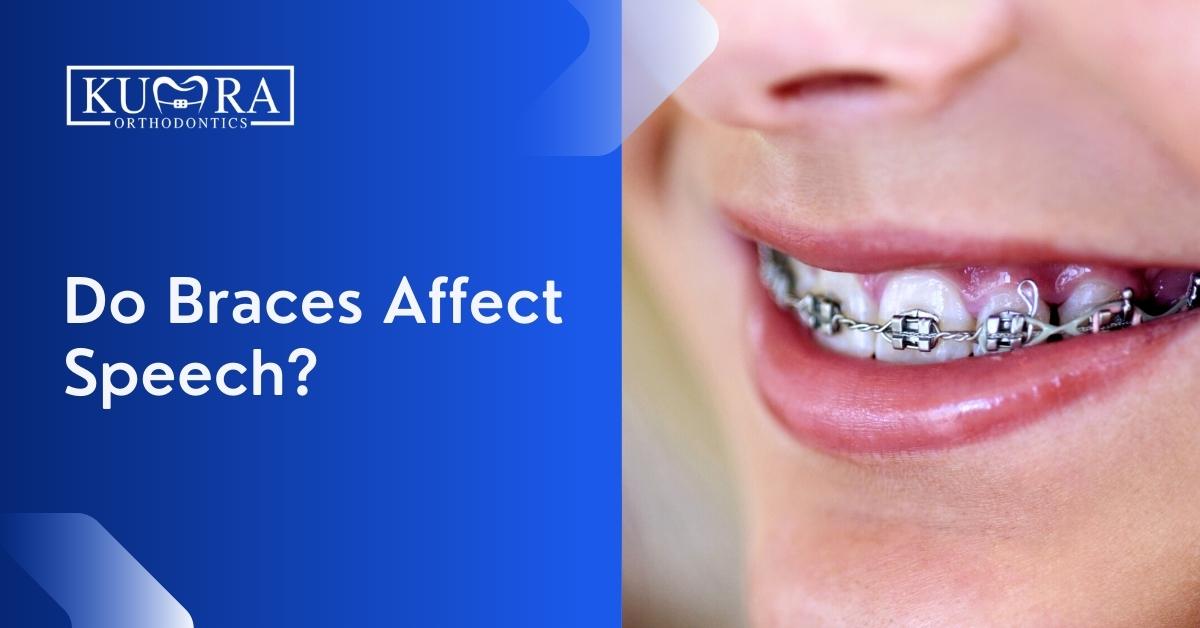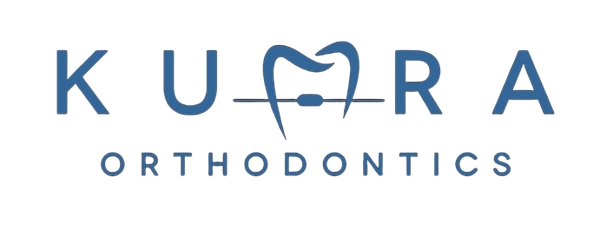It is common to have many questions for your orthodontist when starting your orthodontic treatment. Typically, these concerns revolve around the orthodontic technique, how long it will take to straighten your mouth, and which treatment choice is appropriate for your situation.
‘How will braces affect my speech?’ is a popular question. The answer to this issue is critical, especially for older persons who are having treatment and are required to communicate coherently in the workplace or social settings.
How Braces Affect Speech
For traditional braces (the ones where the clear or metal brackets are placed on the outside of your teeth), you should find very little disruption to your speech. If you have other appliances attached to your braces, such as a bite plate or an expander, then you will almost certainly find your speech affected as your tongue gets used to making sounds around these new obstacles. This might make certain letters or words more difficult to pronounce, but with practice, speech quickly returns to normal or almost normal.
Banter Speech stated that the most commonly affected sounds are /s/ and /t/, which appears to be the case across different languages.
For instance, according to one study, the mean frequency (or pitch) of the /s/ sound decreases dramatically in the 2-3 months following the insertion of braces for many individuals and then gradually increases over the following months. Many people appear to momentarily generate /s/ with a forward tongue position or by placing the tip of their tongue on their teeth, rather than up, on, or near the alveolar ridge, immediately after having braces.
There is evidence that lingual (braces on the inside surface of the teeth, facing the tongue) braces may produce greater and longer-lasting speech issues than buccal and labial braces (braces on the outside surface of the teeth facing the cheeks and lips).
Needing an orthodontic appointment?
Visit Kumra Orthodontics Washington, DC or Kumra Orthodontics Stafford, VA, and request an appointment with us!
For How Long?
It may take some time to get used to the sight and feel of your new braces. As a result, it may be difficult to enunciate words or eat hard meals because of small discomfort on the cheeks and tongue. What you’re doing is perfectly okay! Within a week or two, your mouth will have adjusted, and you will be able to speak normally again.
While you’re waiting, you can work on your speech by reading aloud, singing, or conversing with others.
Tips for Adjusting to Your Braces
Getting through the first week with braces is the most challenging part. Initially, your mouth may feel sore as your new metal is assimilated into your teeth. The first week is the toughest, but you’ll be well on your way to a perfect smile once you get through it.
The following are five tips to help you survive the first week of wearing braces:
1. Be prepared before leaving the orthodontics office
Make sure you talk about these items before you leave the office after getting braces:
- Check wire ends. Make sure the wires don’t extend into areas that could poke your cheeks or run into your tongue the wrong way with your finger and tongue.
- Understand the next steps. Before your next appointment, make sure you have all of your questions answered to know exactly what to expect, including whether or not to wear a helmet, whether or not to use elastics, and whether or not to adhere to any specific hygiene guidelines.
- Double-check your supplies. Before your next orthodontist session, ask for a supply of dental wax, cleaning aids, and elastic bands.
2. Stick with soft foods and cold drinks
Are you unsure of what to eat during your first week of braces? It’s best to eat soft foods and drink cold beverages if your teeth are sensitive. Cold food and drink also provide the additional purpose of temporarily numbing the mouth. Several foods are ideal for people with braces, such as yogurt, applesauce, soup, oatmeal, and scrambled eggs. For the first several days, choose options that require little or no chewing.
It’s fine to eat whatever you want if it’s not on the list of things you’re not allowed to consume with braces, like hard, chewy, or sticky foods. Damage can be done to your equipment by eating these things.
3. Swish with salt water
Adding 1/2 teaspoon of salt to one cup of warm water creates a saltwater rinse. Let the solution linger on any inflamed or sore spots in your mouth before spitting it out. If necessary, you can perform numerous rounds of saltwater rinsing each day. It will hasten the healing process and alleviate any pain associated with it.
4. A good oral hygiene routine
Braces must be cleaned after every meal to eliminate any food particles that may have gotten stuck in the braces. To maintain healthy teeth and gums, it is important to brush and floss at least twice a day.
Related: The Proper Way to Floss with Braces
5. You can fight mouth sores with wax.
Some people find brackets irritating while getting acclimated to them, even though they’re supposed to be gentle. Your skin will become stronger, and you won’t have sore places as often. In the meantime, you can use the wax we supply to alleviate any pain.
Read More: Wax for Braces: How They Work, Purpose and More
Consult with Kumra Orthodontics to learn more about do braces affect speech
If you are considering traditional braces for yourself or a loved one, it is important to know that there should be very little disruption to your speech. Kumra Orthodontics can help you understand the process and what to expect so that you can make an informed decision about whether braces are right for you. Schedule a consultation today, and our team will be happy to answer any questions you may have!



